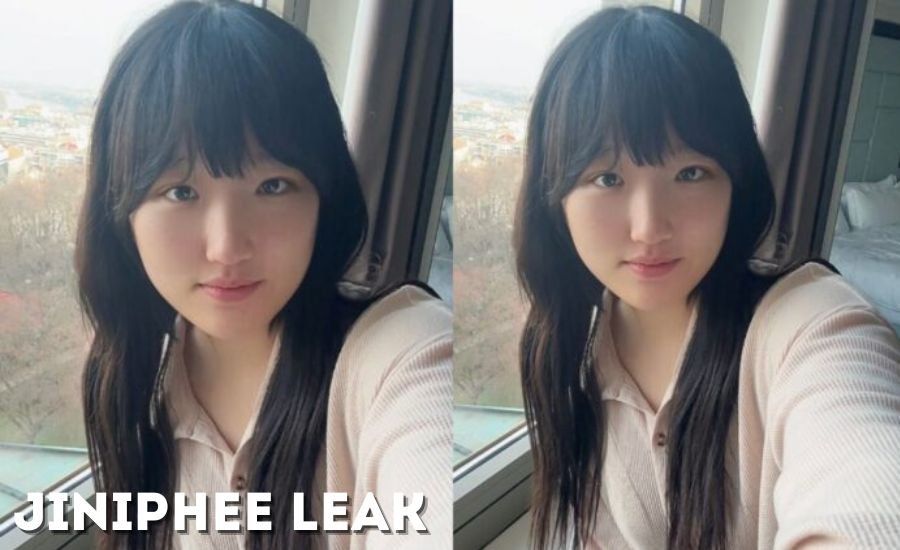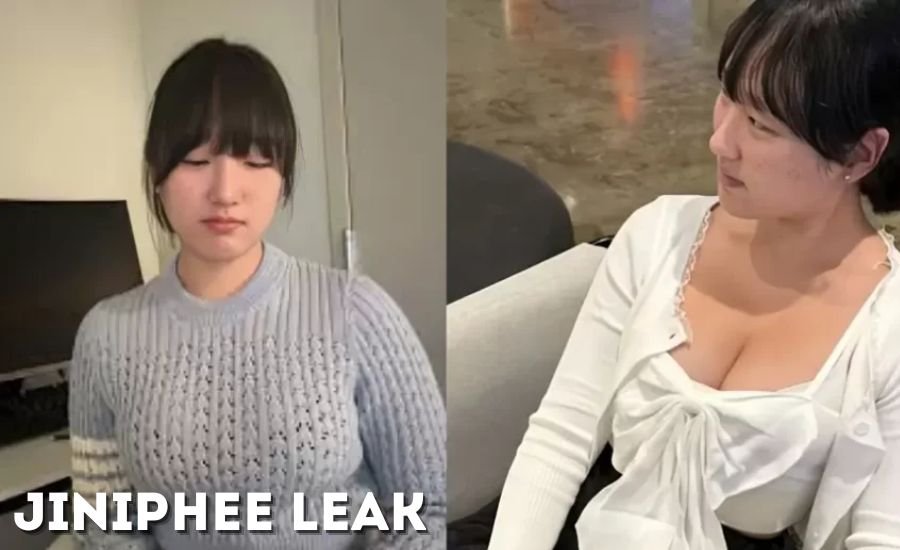Jiniphee Leak: A Deep Dive into the Incident and Its Broader Impact

In today’s digital age, online platforms like OnlyFans have become a haven for content creators, providing a unique space to monetize exclusive content. However, with great opportunity comes great risk. The recent “Jiniphee leak” highlights one of the greatest challenges content creators face: the threat of privacy violations and content leaks. This article delves into the Jiniphee leak, its implications for content creators and fans, and the broader conversation about digital security, privacy, and trust.
Who is Jiniphee?
Jiniphee is a popular content creator on the subscription-based platform OnlyFans, where she shares content ranging from lifestyle and fashion to beauty. Unlike some content creators who focus on a single niche, Jiniphee’s engaging mix of content, combined with her vibrant personality, has earned her a dedicated following.
What makes Jiniphee stand out is her authentic interaction with her fans. She’s known for replying to comments, engaging in direct messages, and creating a sense of community around her content. This level of personal engagement has helped her build a strong, loyal fanbase, which in turn supports her content and contributes to her success.
However, like many online creators, Jiniphee’s success didn’t make her immune to the dark side of digital content creation—privacy violations.
What Happened in the Jiniphee Leak?
The “Jiniphee leak” refers to the unauthorized release of Jiniphee’s private content, which was meant to be exclusive to her paying subscribers on OnlyFans. This content was accessed without her consent and shared widely on social media platforms like Reddit and Instagram.
While exact details of how the leak occurred remain unclear, it’s suspected that either a breach in OnlyFans’ security or the actions of unethical subscribers led to the dissemination of Jiniphee’s private material. This included explicit photos and videos, meant only for her exclusive audience, now freely available to the broader public.
The leak not only violated Jiniphee’s personal privacy but also shattered the trust between her and her subscribers. Many of her fans who had paid for exclusive access to her content were outraged that this material was now circulating without restriction.
The Impact on Jiniphee’s Career and Mental Health
The leak had significant consequences for Jiniphee’s career and personal well-being. As a content creator who heavily relies on fan support, the breach of privacy dealt a blow to her reputation. Even though her loyal followers rallied behind her, the exposure of her private material without consent likely led to emotional and mental strain.
Leaks like this can tarnish a creator’s public image, causing doubt and mistrust among potential new subscribers or brands interested in partnerships. For Jiniphee, this may translate into lost revenue, fewer collaboration opportunities, and a more challenging path to rebuild her public persona.
On a personal level, the emotional toll of a privacy breach cannot be understated. Content creators often face immense pressure to maintain a public image, and when that image is tarnished through no fault of their own, it can lead to feelings of vulnerability, anxiety, and even depression. Jiniphee, like many others in her position, had to grapple with the emotional consequences of her content being shared without her consent.
How Fans and Followers Reacted
Despite the significant setback, Jiniphee’s followers demonstrated overwhelming support. Her fans voiced their frustration with the perpetrators of the leak and expressed solidarity with Jiniphee during this difficult time. This sense of community has been a crucial factor in helping Jiniphee recover from the breach.
Many of her followers took to social media to denounce the sharing of leaked content, urging others to respect the privacy of creators like Jiniphee. Some fans even advocated for stronger legal actions against those responsible for leaks. This show of support from her fanbase highlighted the strength of the relationship she had built over the years.
It’s important to note that fan support can make a huge difference in how a creator bounces back from a privacy scandal. In the case of Jiniphee, her dedicated followers played a pivotal role in helping her regain her footing after the leak.
Online Privacy: The Big Issue Behind the Leak
The “Jiniphee leak” raises critical questions about online privacy, especially for content creators who rely on platforms like OnlyFans to share exclusive material. Although platforms like OnlyFans offer creators a way to monetize their content, they also expose them to risks, particularly regarding security breaches and content leaks.
Digital privacy is not just about protecting personal information—it’s about ensuring that the content creators work hard to produce is only seen by those who have been granted access. When leaks occur, it undermines the entire premise of platforms like OnlyFans, which are built on a foundation of exclusivity and privacy.
For many creators, the risk of leaks is ever-present. Despite platform security measures, unethical users often find ways to bypass protections, whether through screen recording, hacking, or sharing subscription content with others. This makes it incredibly important for creators to take steps to protect their content and their personal information.
Read More Like That: Kelsey and dabb
Lessons for Other Creators: Protecting Your Content

The Jiniphee leak serves as a wake-up call for content creators everywhere. While platforms like OnlyFans provide some security measures, creators need to be proactive about protecting their content. Here are a few strategies to help:
1. Enable Two-Factor Authentication (2FA): This adds an extra layer of security to accounts, making it more difficult for hackers to gain access.
2. Watermark Content: Watermarking photos and videos can deter leaks, as it makes it clear who the original creator is. Even if the content is shared without permission, a watermark can help trace it back to its source.
3. Limit Personal Information Sharing: Creators should avoid sharing personal information, such as their real name, address, or phone number, online. If personal information is leaked alongside content, it could lead to more severe consequences, such as doxxing or harassment.
4. Regularly Monitor for Leaks: Creators should actively search for their content on websites and social media platforms to catch leaks early. There are even tools and services that can help with this, alerting creators to unauthorized sharing of their material.
5. Build a Supportive Community: Engaging with followers and building a strong, loyal fanbase can be a creator’s best defense against leaks. Supportive fans are more likely to report leaks and discourage others from sharing unauthorized content.
You Must Like: Oilers-Fan-Flash-Not-Censored
How Platforms Like OnlyFans Can Improve Security
Platforms like OnlyFans must also take responsibility for protecting their creators. In the wake of incidents like the Jiniphee leak, it’s clear that improvements need to be made to ensure the safety and privacy of users. Here are a few ways platforms can step up:
1. Enhance Encryption: Stronger encryption methods can make it more difficult for hackers to access private content. Encryption protects both the personal information of users and the content they share.
2. Introduce Watermarking Features: Platforms could introduce automatic watermarking for creator content, giving creators an additional layer of protection against unauthorized sharing.
3. Regular Security Audits: Platforms should conduct frequent security audits to identify and fix vulnerabilities before they can be exploited. Proactive security measures can prevent leaks before they happen.
4. Educate Users on Security Best Practices: Many creators may not be aware of the security features available to them. Platforms like OnlyFans should offer clear, easy-to-follow guidelines on how to protect personal information and content.
5. Legal Action Against Violators: Platforms must take swift legal action against individuals who leak content, sending a clear message that privacy violations will not be tolerated.
Legal Implications of Content Leaks
From a legal perspective, the Jiniphee leak raises important questions about digital rights, intellectual property, and privacy. While OnlyFans has some terms and conditions protecting its users, enforcing these rules in cases of content leaks can be tricky.
One of the main challenges creators face is the cross-border nature of the internet. A leak that occurs in one country can easily spread globally, making it difficult to take legal action. Furthermore, identifying the individuals responsible for leaks can be challenging, especially when anonymity is involved.
However, there are growing calls for stronger international laws to protect digital content creators. Governments around the world are slowly beginning to recognize the need for stricter penalties for those who steal and distribute online content without permission.
The Future of Content Creation Platforms
The Jiniphee leak may be just one in a long line of privacy breaches, but it serves as a stark reminder that platforms like OnlyFans need to prioritize user safety and privacy. Moving forward, it’s clear that both content creators and platforms must work together to ensure that private content remains private.
For creators, this means taking proactive steps to protect their material. For platforms, it means investing in the latest security technology, engaging with cybersecurity experts, and fostering a culture of transparency and trust.
Conclusion
The “Jiniphee leak” has exposed vulnerabilities in digital privacy that affect not just Jiniphee but all content creators on platforms like OnlyFans. As creators strive to rebuild trust with their audiences, it’s crucial for platforms to take responsibility and enhance their security measures.
For content creators, incidents like this serve as a reminder of the importance of protecting personal information and exclusive content. By learning from the Jiniphee leak, creators can take steps to safeguard their work, while platforms must work harder to secure their users’ data.
In the end, rebuilding trust is a collective effort. With the right measures in place, creators like Jiniphee can continue sharing their content with confidence, knowing that their privacy and their livelihood are protected.
FAQs
Q: What is the Jiniphee leak?
A: The Jiniphee leak refers to the unauthorized sharing of Jiniphee’s private OnlyFans content across social media platforms without her consent.
Q: How did the Jiniphee leak happen?
A: The exact details are unclear, but it is likely that unethical users or a security vulnerability in the platform led to the unauthorized distribution of her content.
Q: How has the leak impacted Jiniphee’s career?
A: The leak damaged her reputation, caused emotional distress, and may have affected her future opportunities for collaborations and partnerships.
Q: What can creators do to prevent leaks?
A: Creators can use two-factor authentication, watermark their content, limit sharing, and regularly monitor for any unauthorized distribution.
Q: What should fans do if they see leaked content?
A: Fans should report the content to the platform where it is shared and avoid further distributing it to respect the creator’s privacy.
Q: How can platforms like OnlyFans improve security?
A: Platforms can improve security by enhancing encryption, offering watermarking options, conducting regular security audits, and enforcing legal actions against violators.
Q: Is it legal to share leaked content?
A: No, sharing leaked content without consent is illegal and violates the intellectual property rights of the creator.
Read More: https-mejoresapps-org-mejores-aplicaciones-para-realizar-compras-online

Specializing in insightful and engaging articles across a range of topics. With a keen eye for detail and a passion for delivering high-quality information, Mary helps readers stay informed with the latest trends and updates


